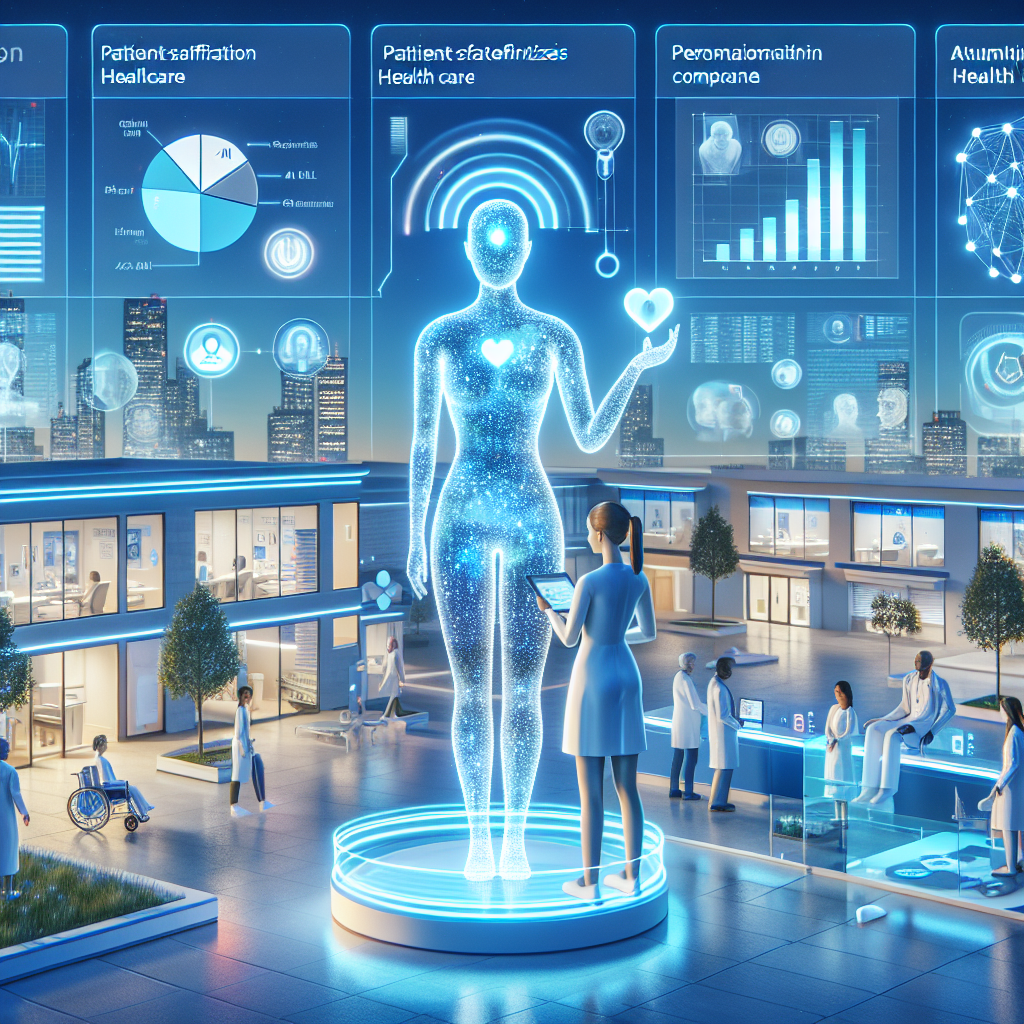Enhancing Patient Experiences Through AI-Driven Personalization
In today’s fast-evolving healthcare landscape, the integration of artificial intelligence (AI) is reshaping how patients interact with providers. By utilizing AI-driven personalization, healthcare organizations can deliver more tailored, effective, and empathetic services to patients, ensuring a seamless journey from diagnosis to recovery. This blog explores how AI technologies enhance patient experiences, foster trust, and optimize healthcare processes.
The Role of AI in Healthcare
AI is transforming traditional healthcare systems by enabling smarter decision-making, automating repetitive tasks, and providing real-time insights from large data sets. Here are some key roles AI plays in healthcare:
- Enhancing diagnostic accuracy through machine learning algorithms.
- Reducing administrative workload for staff, allowing more patient-focused care.
- Offering predictive analytics to identify high-risk patients and prevent complications.
What sets AI apart is its ability to process data and personalize healthcare services based on individual needs. This brings us to one of its most impactful applications: enhancing the patient experience.
What is AI-Driven Personalization?
AI-driven personalization refers to the use of AI technologies to create customized healthcare experiences for each patient. By analyzing data such as medical history, demographics, and lifestyle, AI can provide relevant insights to predict patient needs, suggest treatments, and even improve patient communication.
This tailored approach allows healthcare providers to move beyond one-size-fits-all solutions, fostering trust and making patients feel valued and understood.
Ways AI-Driven Personalization Enhances Patient Experiences
1. Personalized Treatment Plans
Every patient is unique, and AI-driven systems can help craft individualized treatment plans. By analyzing medical records, genetic information, and even lifestyle habits, AI ensures that the care a patient receives is tailored and optimized for better outcomes.
For instance:
- AI-powered tools can recommend customized medications based on genetic data.
- Predictive algorithms can signal potential side effects, helping doctors make timely adjustments.
- Personalized rehabilitation plans can be created post-surgery to suit a patient’s pace.
2. Improved Communication and Engagement
AI-powered chatbots and virtual assistants are revolutionizing patient engagement. These tools provide round-the-clock support, answering questions, scheduling appointments, and even offering reminders for medication. By improving communication, they bridge the gap between patients and healthcare providers, reducing stress and uncertainty.
Benefits include:
- Always-available virtual assistants for addressing patient concerns.
- Automated reminders for medications, reducing chances of missed doses.
- Interactive apps that help patients track symptoms and treatment progress.
3. Predictive Analytics for Preventive Care
AI’s predictive analytics go a long way in improving preventive care. By identifying patterns in patient data, healthcare providers can proactively address potential health concerns before they become serious illnesses.
Examples include:
- Identifying high-risk patients for conditions like diabetes, cardiovascular diseases, or mental health issues.
- Providing early warnings about complications during pregnancy.
- Flagging patients with recurring symptoms for further in-depth evaluation.
4. Enhanced Accessibility
AI is bridging gaps in healthcare accessibility, particularly for underserved populations. With innovations like telemedicine powered by AI, patients can receive quality healthcare regardless of location or mobility restrictions. Additionally, AI tools can support multilingual communication, ensuring no language barrier obstructs the care process.
Key advancements in accessibility include:
- Telehealth platforms offering AI-enhanced virtual consultations for remote patients.
- Speech-to-text tools enabling communication for patients with disabilities.
- Language translation tools improving care delivery across borders.
AI in Action: Success Stories
Healthcare providers globally are beginning to adopt AI-driven personalization, and the results are promising. Here are a few success stories highlighting its transformative potential:
- Cleveland Clinic: The integration of AI chatbots helped them reduce response times to patient queries, leading to a 20% increase in satisfaction scores.
- Mayo Clinic: AI-driven predictive analytics allowed physicians to intervene earlier for critical patients, reducing hospital readmissions significantly.
- Babylon Health: An AI-powered app provides personalized healthcare plans and guidance, allowing users to manage chronic conditions effectively.
Challenges and Ethical Considerations
While AI-driven personalization holds immense promise, it also raises certain challenges:
- Data Privacy: Healthcare data is sensitive, and safeguarding patient information is paramount.
- Bias in Algorithms: If not trained correctly, AI models can reflect biases, impacting treatment recommendations.
- Cost of Implementation: Adopting advanced AI systems can be expensive for smaller healthcare providers.
Addressing these concerns requires robust policy frameworks, ethical AI development, and a collaborative approach among healthcare stakeholders.
Future of AI-Driven Personalization in Healthcare
The potential of AI-driven personalization is boundless. As technology advances, we can expect:
- Smarter AI algorithms offering hyper-personalized solutions.
- Wider adoption of virtual health assistants for chronic disease management.
- Decrease in diagnostic errors, thanks to enhanced AI-powered tools.
Investments in AI will not only ensure exceptional patient experiences but also reduce operational inefficiencies, paving the way for more accessible and affordable healthcare worldwide.
Take the Leap Toward Smarter Healthcare
Healthcare providers have a tremendous opportunity to redefine patient care through AI-driven personalization. By leveraging cutting-edge technologies, you can enhance patient satisfaction, improve health outcomes, and maintain a competitive edge in the industry.
Ready to explore AI-powered healthcare solutions that revolutionize patient experiences? Reach out to our experts today and transform the future of care.



